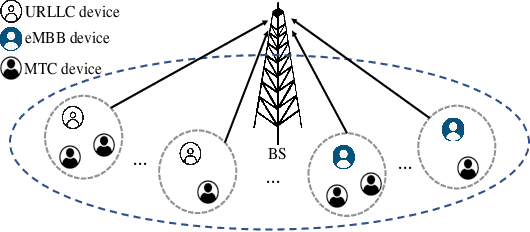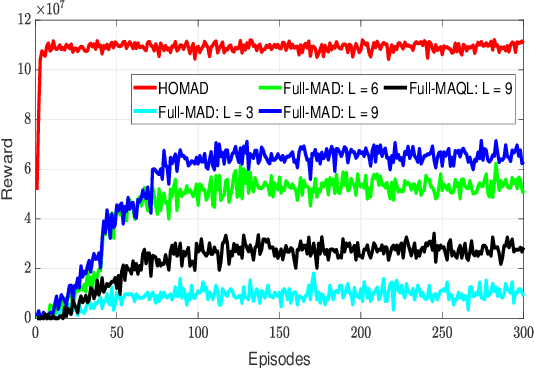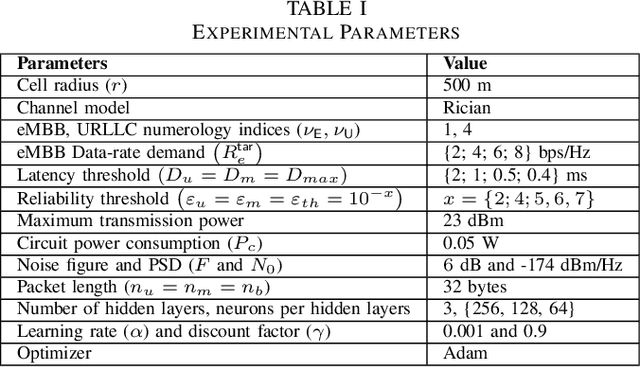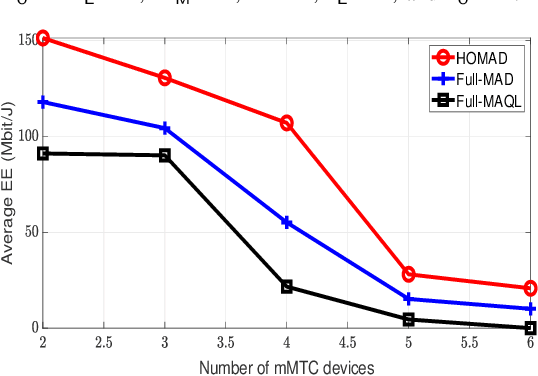A Hybrid Optimization and Deep RL Approach for Resource Allocation in Semi-GF NOMA Networks
Paper and Code
Jul 18, 2023



Semi-grant-free non-orthogonal multiple access (semi-GF NOMA) has emerged as a promising technology for the fifth-generation new radio (5G-NR) networks supporting the coexistence of a large number of random connections with various quality of service requirements. However, implementing a semi-GF NOMA mechanism in 5G-NR networks with heterogeneous services has raised several resource management problems relating to unpredictable interference caused by the GF access strategy. To cope with this challenge, the paper develops a novel hybrid optimization and multi-agent deep (HOMAD) reinforcement learning-based resource allocation design to maximize the energy efficiency (EE) of semi-GF NOMA 5G-NR systems. In this design, a multi-agent deep Q network (MADQN) approach is employed to conduct the subchannel assignment (SA) among users. While optimization-based methods are utilized to optimize the transmission power for every SA setting. In addition, a full MADQN scheme conducting both SA and power allocation is also considered for comparison purposes. Simulation results show that the HOMAD approach outperforms other benchmarks significantly in terms of the convergence time and average EE.
 Add to Chrome
Add to Chrome Add to Firefox
Add to Firefox Add to Edge
Add to Edge